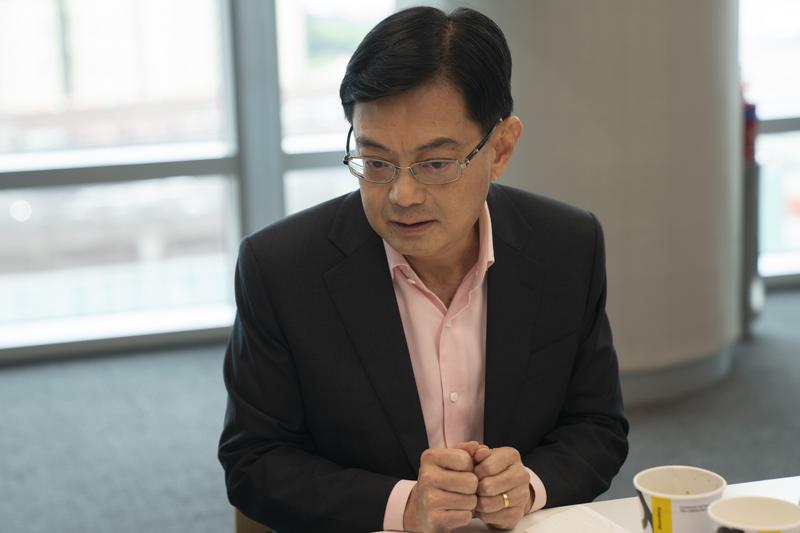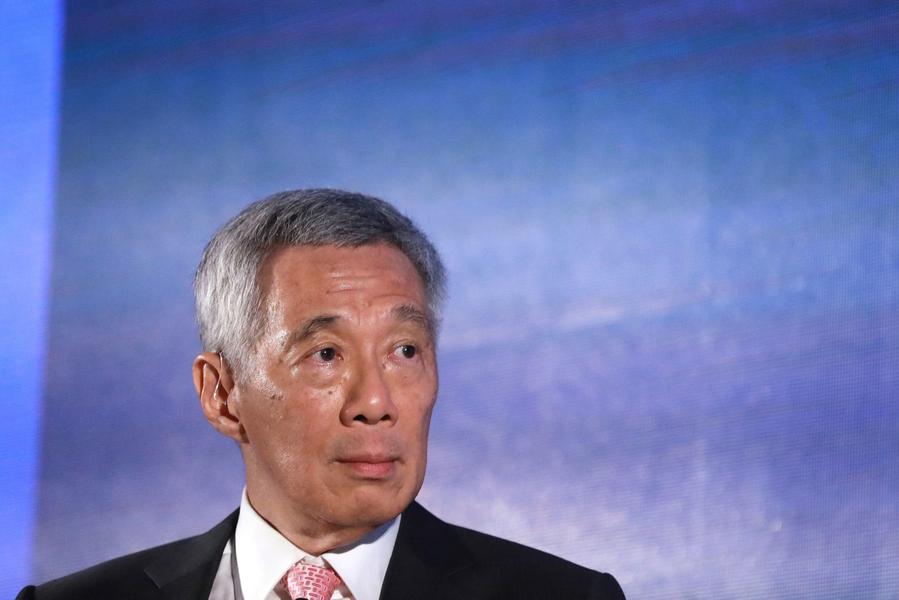 In this Feb 19, 2020 photo, Heng Swee Keat, Singapore's deputy prime minister and finance minister, speaks during a meeting in Singapore. (PHOTO / BLOOMBERG)
In this Feb 19, 2020 photo, Heng Swee Keat, Singapore's deputy prime minister and finance minister, speaks during a meeting in Singapore. (PHOTO / BLOOMBERG)
Singapore Finance Minister Heng Swee Keat stepped aside as the designated successor to Prime Minister Lee Hsien Loong, a surprise move that will likely push back a long-telegraphed power transition in the city-state.
A career civil servant and politician, Heng Swee Keat is currently both deputy prime minister and finance minister
In a letter addressed to Lee on Thursday, Heng - who turns 60 this year - said the pandemic meant that he would likely be too old to take over as prime minister “when the crisis is over” roughly five years from now. He said a younger leader should take over instead, adding that he stands ready to support whomever is chosen by party officials.
“When I also consider the ages at which our first three prime ministers took on the job, I would have too short a runway should I become the next prime minister then,” Heng wrote. “We need a leader who will not only rebuild Singapore post-COVID-19, but also lead the next phase of our nation-building effort,” he added.
In a joint briefing with top leaders on Thursday, Lee said he respected the decision and noted that Heng would step aside as finance minister in the next cabinet reshuffle, which will take place about two weeks from now. The prime minister said the goal was to identify a successor among younger leaders before the next election due in 2025.
ALSO READ: Singapore foreign minister to visit three SE Asian countries
“Succession remains an urgent task and cannot be put off indefinitely,” Lee said. “I think it’ll take longer than a few months, but I hope they’ll reach a consensus and identify a new leader before the next general elections. I have no intention of staying on longer than necessary.”
Asked if he would stay on for another five years, Lee said: “I hope not. I will stay on a bit longer so that the new successor can be identified, can get ready, and as soon as he’s ready, I’ll like to hand over to him.”
While Lee has previously signaled his intention to step down by the time he turns 70 in February 2022, last year he reaffirmed a pledge to stay until the country was in “good working order” following the weakest election performance ever by his ruling People’s Action Party.
In a separate statement Thursday, a group of younger party leaders said they respected Heng’s decision and asked Lee “to stay on as prime minister until such time when a new successor is chosen by the team and is ready to take over.”
“This unexpected turn of events is a setback for our succession planning,” the 32 so-called fourth-generation party members said in a statement. “We recognize that Singaporeans will be concerned. We seek your support and understanding, as we choose another leader for the team.”
 This undated photo shows Singaporean Prime Minister Lee Hsien Loong. (GIULIA MARCHI / BLOOMBERG)
This undated photo shows Singaporean Prime Minister Lee Hsien Loong. (GIULIA MARCHI / BLOOMBERG)
The Singapore dollar was little changed against the greenback, as was the US-listed iShares MSCI Singapore ETF in premarket trading.
A career civil servant and politician, Heng is currently both deputy prime minister and finance minister. His soft-spoken nature and collaborative approach won him allies in the business community, but a poorer-than-expected showing in the 2020 elections drew questions about his popularity and threw the timetable for succession into doubt.
“It was pretty clear from the election that he didn’t garner a strong mandate for himself as a potential incoming prime minister,” said Bridget Welsh, honorary research associate at the Asia Research Institute, University of Nottingham Malaysia. “There was an attempt to wait for some time after the election for any changes within the leadership structure.”
‘Cannot deliver’
In a press briefing Thursday, Heng said relatively poor showing the last election wasn’t the reason he stepped aside.
“I do not want to take on any job which I cannot deliver,” Heng said. “As those of you who have worked with me know I am a workaholic and I put my heart and soul into what I do, and therefore I’ve been thinking about it as to whether am I the right person.”
Heng was poised to become Singapore’s fourth prime minister since 1965, a period that has seen uninterrupted rule by the People’s Action Party. His ascent would’ve heralded a change in leadership style for the nation, which for all but nearly 14 years has been run by Lee or his late father, Lee Kuan Yew.
READ MORE: Singapore sees safe reopening of Changi as key to survival
Critical years ahead
Singapore’s economy is now showing signs of getting back on track from the worst slump in its history. Economists see Singapore’s growth recovering to a 5.9 percent pace this year, helped by about S$100 billion (US$74 billion) in fiscal stimulus, following a 5.4 percent contraction in 2020 - the country’s worst performance since independence.
The shakeup on Thursday is “hugely politically significant” given how carefully Singapore manages the succession process, according to Eugene Tan, an associate professor of law at Singapore Management University.
“The next few years are going to be critical,” Tan said. “How each minister deals with the pandemic with regard to how they affect his portfolio his ministry - all that will come under scrutiny.”


